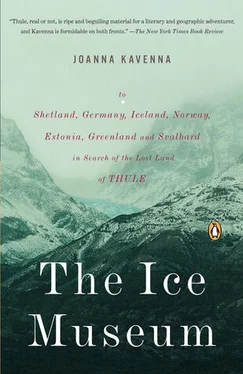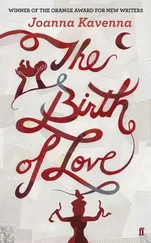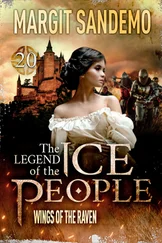I sit in the hotel lobby for a while, drinking tea, until the reception clears. Then I walk over and ask the concierges if they know anything about the history of the hotel. A book is produced and handed over. It’s a hardback, crammed with photographs of famous guests and adverts for luxury goods. The hotel was founded by Maximilian II, who established a competition in 1858 for a new boulevard, which was named after him. ‘There are a whole array of readily appreciable reasons for the outstanding status of this establishment in the hotel landscape of the Bavarian capital,’ says the book. ‘They lie both in the present and the past.’ They lie in the princely origins of the hotel, in the long list of guests, a list including Queen
Elizabeth II, Prince Charles, George Bush Senior, Jimmy Carter, quantities of media celebrities, pop stars, tennis players, film stars from Woody Allen to Elizabeth Taylor. A roll call of the rich and famous, listed with pride by the hotel in its official history. But there is no mention of the Thule Society.
I find a senior concierge, who is serious and polite. He has a wide smile, revealing gaps in his teeth. He’s immaculately dressed. He’s greeted queens and princes and presidents. He’s been photographed handing them over to the head chef; he’s waved them off in their limousines. He tells me he knows a little about the history of the hotel. ‘But you have seen our book; our book tells you everything you need to know,’ he says, smiling. He’s polite, but I imagine he’s thinking that he has a thousand things to do, that there will soon be another wave of guests. The book is meant as the hotel’s corporate reply to questions about its history, its prominent status in the upper echelons of Munich society over more than a century and its fortunes during World War Two.
‘It’s a fine book,’ I say. ‘But, and of course there are very understandable reasons for this, it says nothing about the Thule Society.’ He has been very serious, and suddenly he laughs. Embarrassed, perhaps, or reluctant. Perhaps he suspects me of an indecent enthusiasm. He says, ‘Oh, them. Well you know they are perhaps not my kind of people. Let us say there are different religions, you know, different beliefs, and those people had a very different religion indeed. A religion thankfully no longer observed by many people today. You know there are all sorts of people, unpleasant people, and they were here once, in the past. It is for that reason we don’t mention them,’ he says.
‘What reason?’ I ask.
‘The reason,’ he says, laughing nervously again. ‘You know. There is a country with the Star of David on its flag, and these people would not really have got along with the people of that country. You understand what I mean now? I don’t want to say what they were, but you know they were not pleasant people.’
‘So you feel it is best they are forgotten?’
He is silent for a few seconds, then he says: ‘A few years ago a production company from America wanted to come here, to make a film which included scenes about those meetings of the Thule Society. They wanted to film in our hotel, in the place where the society met. There was some debate about it, whether it was a good thing; you know, there is always the argument for talking about these things, to make sure people know the things that happened. But we said no in the end.’
‘Where were they going to film?’
‘Well, this society met in the Old Bar. That’s where they met,’ he says. ‘So I suppose they might have filmed there. But we decided it is not something we want the hotel to be associated with.’ He is still laughing, in a slightly odd way, as if I have opened a conversation that is slightly unacceptable, made something of a faux pas, but he is trying to help me out of the embarrassment.
He’s employed to help, to answer enquiries, and he knows a lot about the history of the hotel. But he is in a difficult position. He’s eager that I shouldn’t push the questions further. He is hardly going to take me off to the Old Bar and show me where the proto-Nazis sat. He smiles and laughs as I thank him for his help. We move on to other subjects—afternoon tea, the weather outside. He stands politely, attentively, while we discuss the tapestry behind the bar. Then, he says uneasily: ‘You say you knew about the Thule Society, somehow, meeting here. How did you know?’ he asks. When I explain, he laughs with something like relief, a full-throated laugh this time, no trace of nerves.
Hotels, bars, restaurants are neutral places, where anyone can eat or sleep without being asked whether they are a potent force for evil or an innocuous passer-by. The Thule Society had sat in the hotel, talking bitterly about the supremacy of the Germanic race, and then they had vanished, to be replaced by other guests. Munich was full of places where unsavoury figures had sat, eating, drinking and plotting national resurgence. Places still trading, still serving up food and drink without asking questions of their customers. Practical necessity had extended the lives of many of these buildings after the war. As well as the Führer Building, there was the Haus der Kunst, another Nazi complex of columns and slabs, which was still standing by the river and was used for exhibitions and theatre productions. Many of the restaurants and inns where Hitler ranted and hectored were still serving up beer and noodles to their customers. The Four Seasons was still standing in central Munich, available for use. The Thule Society members had faded into obscurity, and no one was more eager to forget them than the polite concierge.
The concierge smiles as I wander off. He knows where I’m going, but he doesn’t try to stop me. I walk along an opulent corridor with mirrors on the ceiling and pillars at intervals. It runs through the older part of the hotel, behind the reception. There are Maximilian salons in pale cream and white, with teacups and wine glasses ready in the corner, the curtains drawn against the damp day. Everything is bright and well washed, cleanly painted in light shades, except for the Old Bar, which has wooden panels and dark leather armchairs, with glass cabinets full of antique plates and cups and sculptures of birds. There’s a portrait on the far wall of a woman riding side-saddle in long skirts. There’s a round table set with a white cloth, surrounded by red-backed chairs. With an effort of the imagination, I could summon a collection of anti-Semites to the place; I could imagine them finding the close confines a pleasant place to conspire, to worship the ancient heritage of the ‘Aryan’ tribes. I could imagine their absurd evenings of Nordic song and dance, the high ceremony of a self-appointed elite. But in the intervening years the place has been bombed and rebuilt, renovated and restored. The room has no eerie atmosphere, no trace of the polemical vileness of the Thule Society. It’s just a neatly restored room, in a luxury hotel, with a table set for tea.
Outside, the bells chimed across the city, the cars queued at the lights. The crowds were pouring into the Pinakothek, drifting past the Altdorfers and the Cranachs, past the painted landscapes. The crowds were surging onto the trams, travelling through the reconstructed city, stopping for cakes and ices at the cafés. The tarmac gave off a wave of heat as I walked along Maximilianstrasse, and the cars sounded like industrial noise, their tyres clanging on the tram tracks. I walked along lethargic streets, past cafés with their outdoor tables packed with people. In a crowded beer garden I waited for Ursula to come to the table. I’d been sent to see her by a professor at the university, who told me she knew everything about the Thule Society. Ursula, the professor had told me, knew all about interwar Munich, about the faction wars and militias and the seedy conspiracies. The professor thought, though he wasn’t sure, that a member of Ursula’s family had been in the Thule Society. It was perhaps best, the professor had added, if I didn’t ask Ursula too much about this. When I called Ursula, she said she would talk to me, on the condition that she was neither exposed nor named.
Читать дальше












